Archive for 'Vocabulary'
Baffled by Idiomatic Expressions? Posted by Kyung-Hwa on Jun 7, 2017
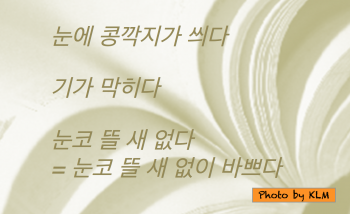
Have you ever scratched your head in confusion due to certain expressions in Korean, even though you knew all the words in the expressions? In this post, we will explore some idiomatic expressions that are often used by native Korean speakers. When I first heard the expression “I will take a rain check” in English, I…
What Is a Topic Marking Particle? Posted by Kyung-Hwa on May 31, 2017
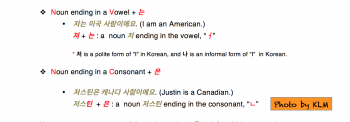
Have you ever wondered what the small words, 이/가, 은/는, or 을/를 in the Korean language mean? It is important to understand the concept of these Korean particles, although they have little or no meaning by themselves. In Korean sentences, subjects, objects, and topics are determined by these particles. In this post, we will explore…
Interrogative Sentences in Korean Posted by Kyung-Hwa on May 24, 2017
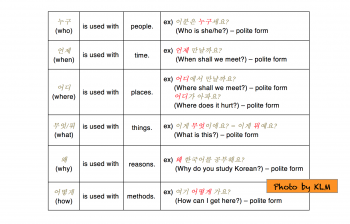
Do you remember this post “Like or Don’t Like in Korean?” We explored one of the simplest ways to form interrogative sentences in Korean. All you had to do was to add a question mark to a declarative sentence and raise the intonation at the end of the sentence. In this post, we will learn…
The Race to the Presidential Election Posted by Kyung-Hwa on May 9, 2017
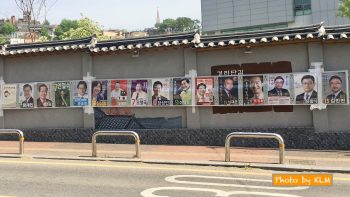
Election Day is just around the corner, and many South Korean voters are waiting in anticipation to elect their next resident of the 청와대 (Presidential Blue House). For several months, Korea has faced political crisis and challenges due to 박근혜 (Park Geun-hye) who served the 18th presidential term in South Korea. She was officially removed from her presidency…
What Is a Subject Marking Particle? Posted by Kyung-Hwa on May 3, 2017
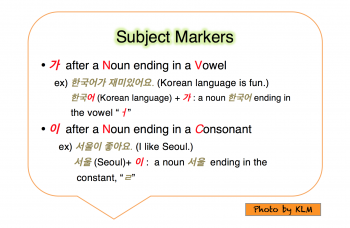
Have you ever wondered about the small words, 이/가, 은/는, or 을/를 in the Korean language? They are particles that mark a subject, topic, or object in a sentence. In this post, we will explore the subject markers, 이 and 가 in Korean. For examples, the particle “off” from the phrasal verb “call off (cancel)” has…
Spring Flowers and Their Vibrant Colors Posted by Kyung-Hwa on Apr 26, 2017
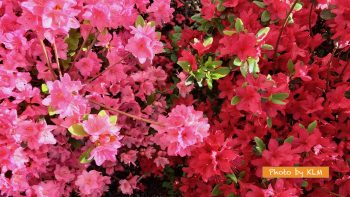
Spring in Korea generally starts in March and lasts until May. Due to its mild and warm weather, spring is a great time to explore many different attractions and enjoy the vibrant spring blossoms all over the country. Korea has four distinctive seasons. 봄 (spring), 여름 (spring), 가을 (fall) , and 겨울 (winter), and each…
없어요: Existence and Possession in Korean #2 Posted by Kyung-Hwa on Apr 19, 2017
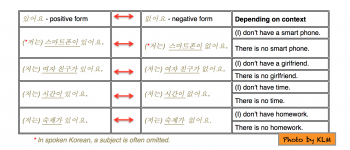
Last week I introduced the Korean word “있어요” which is used to indicate that you have something or someone in Korean. Additionally, “있어요” is used to describe the existence or location of something or someone. In the second post of the series, we will explore this Korean word, “없어요”, which is the opposite meaning of…


